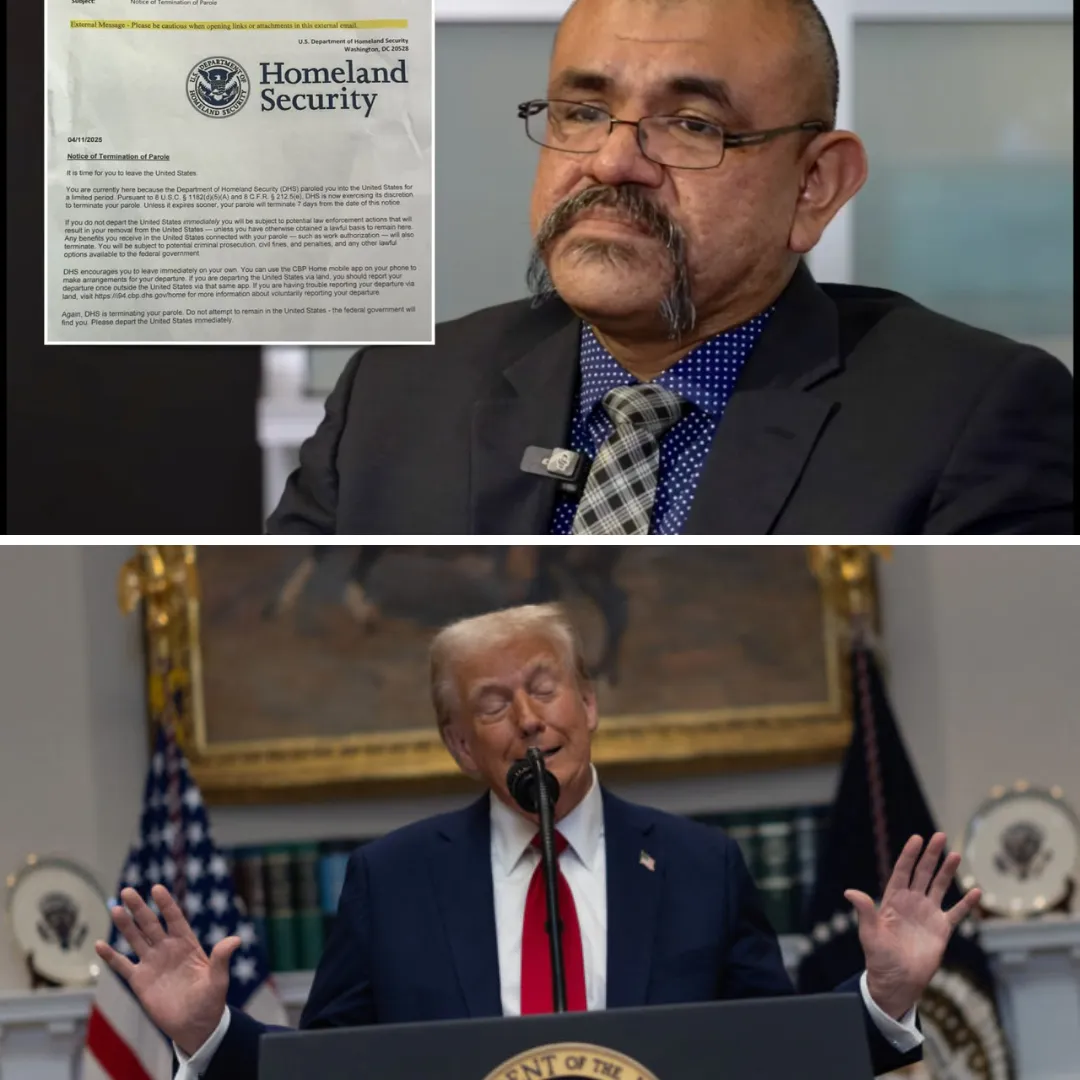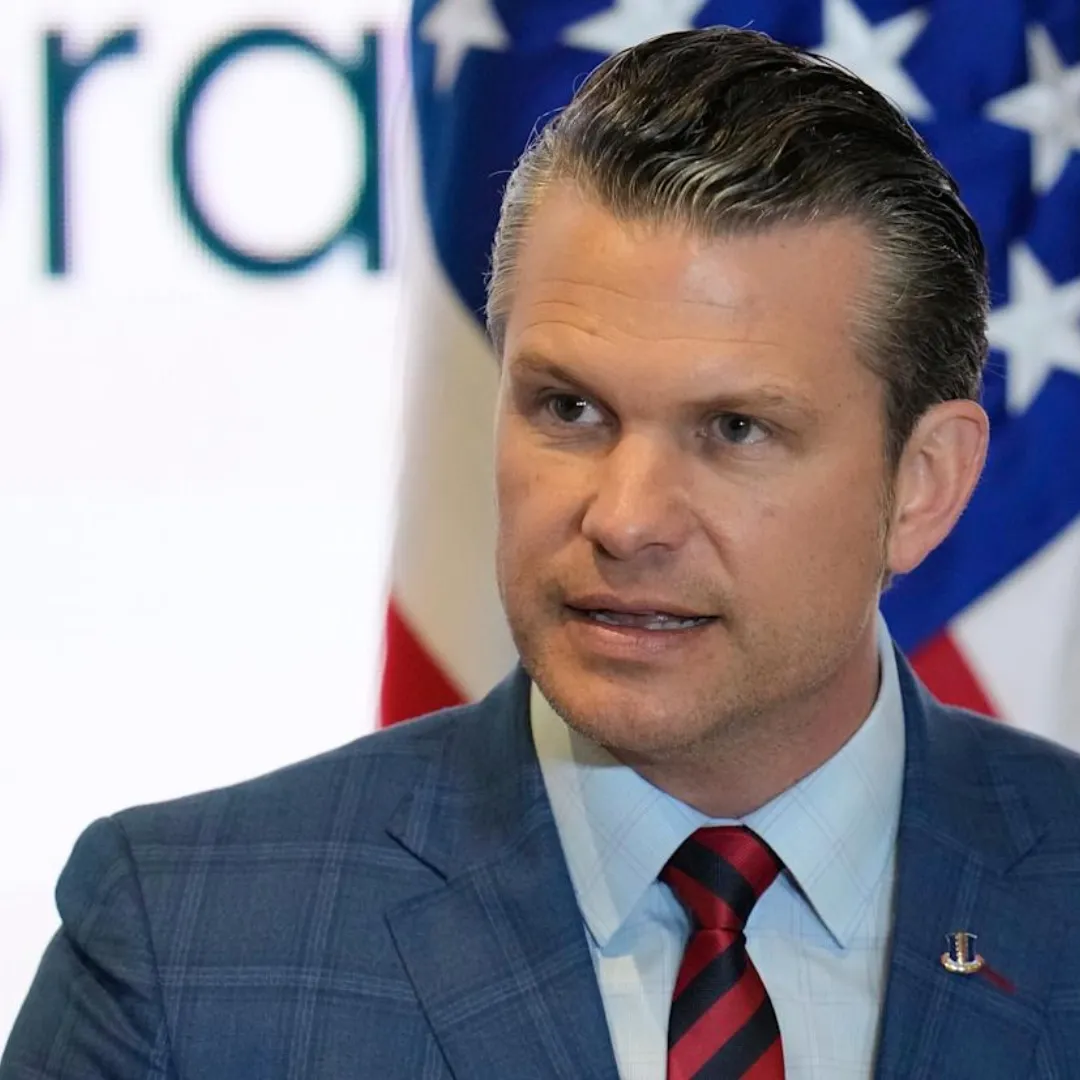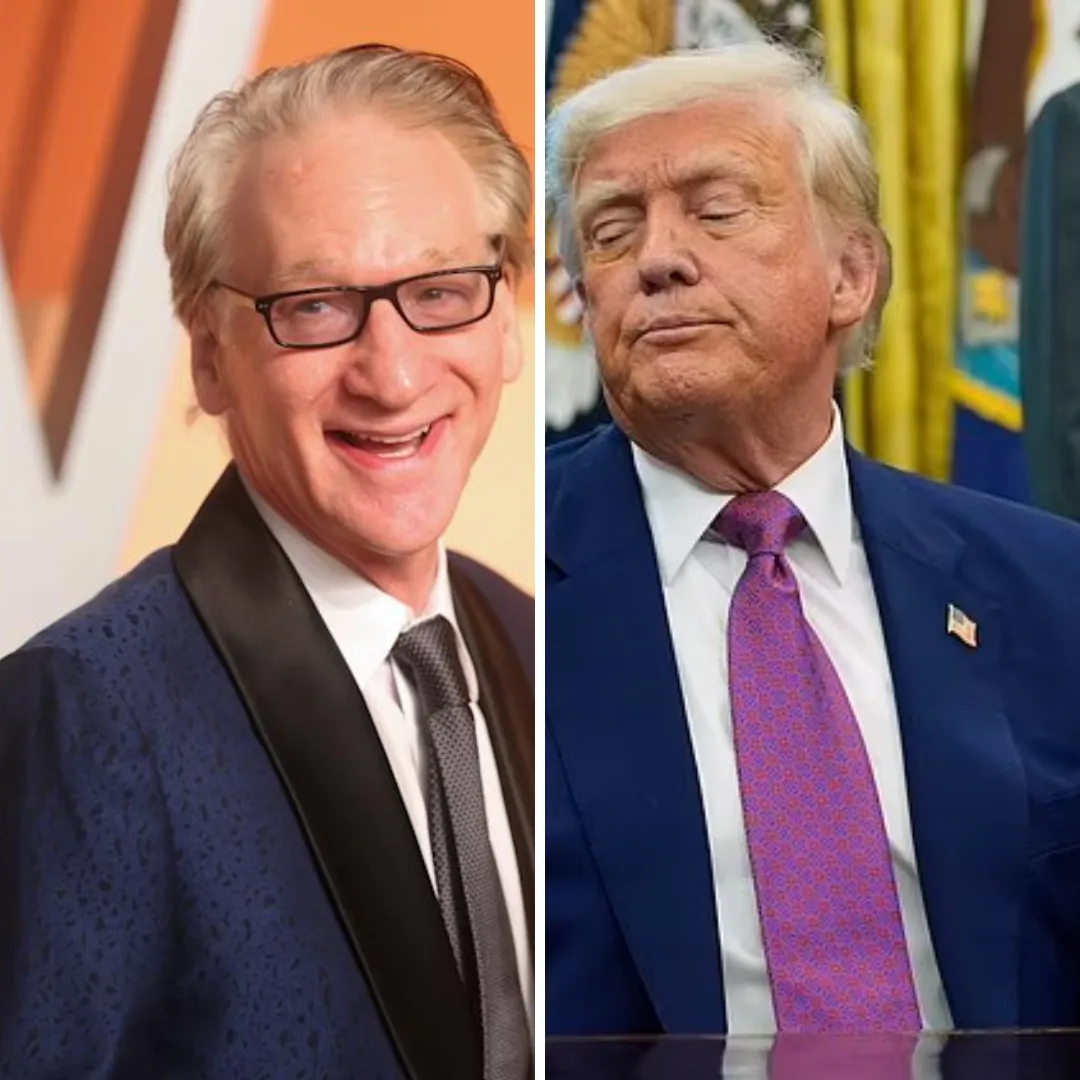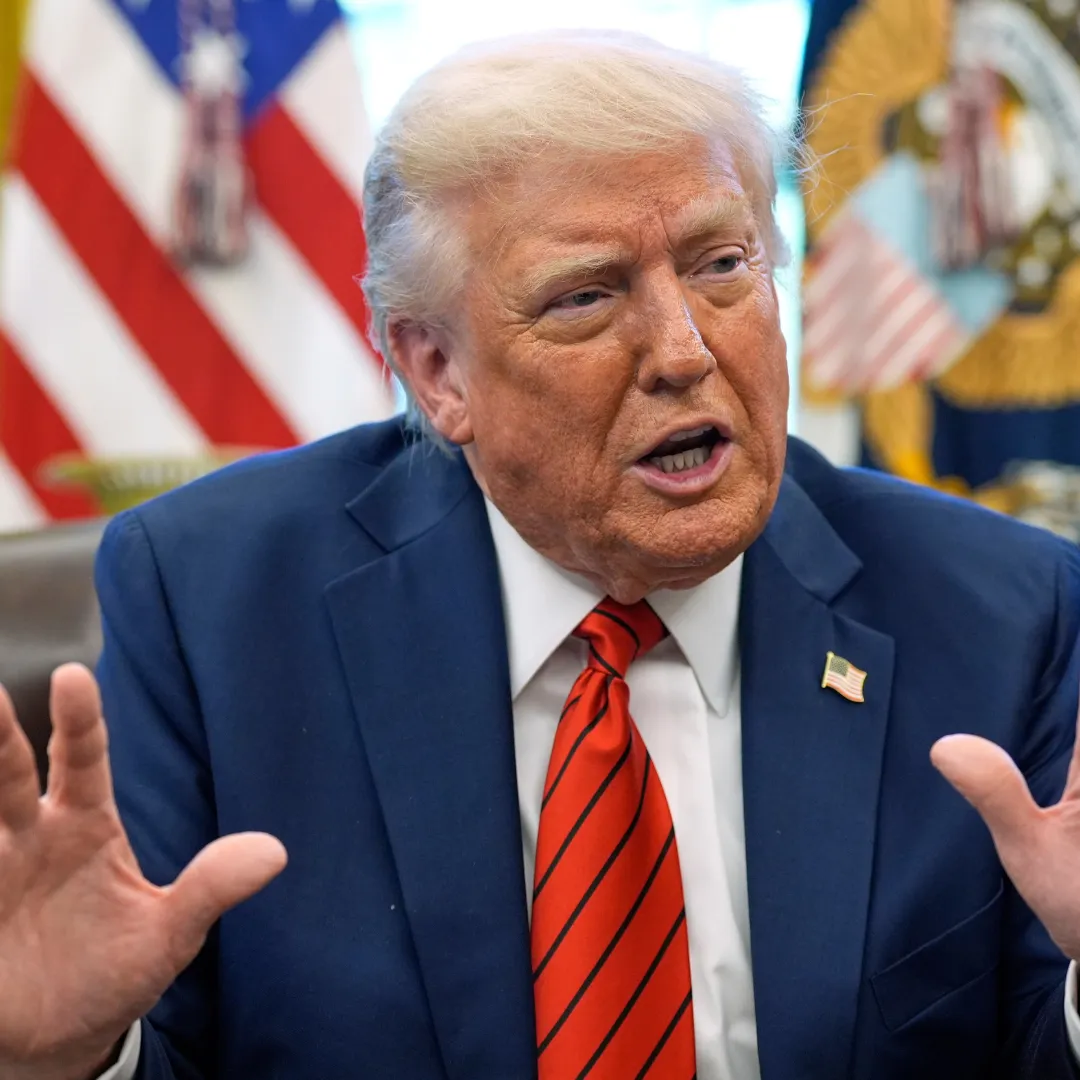:max_bytes(150000):strip_icc():focal(939x212:941x214)/chasten-pete-buttigieg-twins-gus-penelope-easter-white-house-041023-d61446d86c3b41d386d18fdd18045ef4.jpg)
Former Transportation Secretary Pete Buttigieg has opened a revealing and deeply personal window into the adoption process he and his husband went through while becoming fathers to twin Black children, exposing the racial disparities embedded in America’s adoption system.
Speaking candidly on the “Flagrant” podcast, Buttigieg shared that he was stunned to discover the process operated under separate guidelines depending on the race of the child, a system he said most Americans remain completely unaware of.
“By the way, anybody who says race is not a thing in this country should experience an adoption process where there are literally different lists,” Buttigieg said, describing the reality they faced while searching for a match.
He explained that the adoption agencies they worked with offered separate options depending on whether prospective parents were open to children of any race or requested specifically to adopt a white child. “If you say that you want a white kid only versus if you say that doesn’t matter. Like, literally a different list.”
The shock went even further when he learned that not only was the list for white children longer—meaning greater demand—but the cost structure also reflected stark racial disparities. “Not only that, there was actually a discount, or you didn’t have to pay a deposit on the fetus,” he added. “This is like, how it works. I couldn’t believe it.”
Buttigieg’s story is not just an isolated anecdote—it is backed by decades of research that exposes how race and implicit bias continue to shape the adoption system in the United States.
Although the number of Black children in foster care has declined to its lowest point in two decades, Black children remain significantly overrepresented in the system. According to data from 2021, Black children made up only 14% of the country’s child population, yet accounted for 22% of all foster care cases.

A 2023 study revealed that white children are 1.27 times more likely to be adopted than Black children. This disparity is not just about adoption rates—it extends to the time it takes to finalize the process.
While white children waited an average of 273.5 days from the termination of parental rights to adoption finalization, Black children waited an average of 328 days. These numbers speak to a larger pattern of systemic inequity that has persisted for generations.
The roots of these disparities, according to experts, lie in implicit bias—subtle, often unconscious prejudices that shape the preferences of prospective adoptive parents.
While many do not believe themselves to be discriminatory, research suggests that race continues to play an outsized role in the choices people make when adopting, often to the detriment of Black children who remain harder to place in permanent homes.
In response to this difficulty, some adoption agencies have resorted to reducing the cost of adopting Black children. The financial divide is staggering: a 2015 report from Foster Care Newsletter stated that it cost approximately $35,000 to adopt a white child, while adopting a Black child averaged just $18,000.
While agencies may justify the lower cost as an effort to improve placement rates, critics argue that it reinforces the perception that Black lives are worth less—and that the market-style pricing of children based on race is a deeply disturbing legacy of commodification.
The racial pricing of adoption dates back decades. In the 1970s, when interracial adoption first began to grow, organizations like The National Association of Black Social Workers voiced strong opposition.
:max_bytes(150000):strip_icc():focal(449x299:451x301)/penelope-gus-buttigieg-first-birthday-081522-d941b4a228a74afa977fabf9d3d16f40.jpg)
They warned that the practice could reinforce harmful ideas, suggesting that Black children were mere property to be assigned rather than individuals with cultural and racial identities that needed to be preserved.
At the time, the association argued that interracial adoption would perpetuate a mindset in which African-American children continued to be “assigned to chattel status.”
As the decades passed, the narrative surrounding interracial adoption shifted. Today, many see it as a hopeful solution for children in need of families, regardless of race.
But the conversation around racial disparities and implicit bias has never fully disappeared. If anything, stories like Buttigieg’s illustrate just how far the country still has to go in making the adoption process fair and equitable.
Buttigieg, now a father to Black twins, acknowledged that raising children of a different racial background comes with unique challenges and responsibilities. He said he is working to educate himself, and seeking mentors and guidance to help support his children’s growth and understanding of their racial identity.
He emphasized that while his love for his children is boundless, he recognizes that his own whiteness means he has never had to think daily about his racial identity—the way his children will inevitably have to.
“The reality is, like, this is not a colorblind society,” he said. “Their lives will be affected in some way by their race — all of ours are — but one thing about being white is, you don’t have to think about the fact that you’re white. Your racial identity is not something that you’re reminded of all the time in a way that they will be.”
Buttigieg’s comments have sparked important conversations about the intersection of race, parenthood, and systemic inequality. While some social media users applauded him for speaking openly about a taboo topic, others expressed outrage that such disparities continue to exist without more widespread public knowledge or policy action.
His testimony adds weight to a growing movement of parents, social workers, and policy experts calling for transparency and reform in the adoption system.
Advocates argue that more needs to be done to ensure racial equity in adoption—not just in terms of placement, but also in the support provided to adoptive families. Transracial adoption brings unique challenges, especially when it comes to helping children of color develop a healthy sense of identity in environments where their race may not be reflected or understood.
Cultural competency training, post-adoption support, and open discussions about race are critical components of raising children across racial lines.
Buttigieg's openness adds to a broader national reckoning with how race impacts all facets of American life, including the deeply personal realm of family.
It forces the public to confront uncomfortable truths—that even in moments of hope, such as bringing a child into a loving home, racism can shape the rules, the access, and even the price tag.

As a former presidential candidate and one of the highest-ranking openly gay officials in American history, Buttigieg has long stood at the intersection of multiple forms of representation and visibility.
His family, now front and center in this conversation, challenges traditional narratives of what an American family looks like—and pushes the nation to reflect on what fairness in that journey should look like too.




